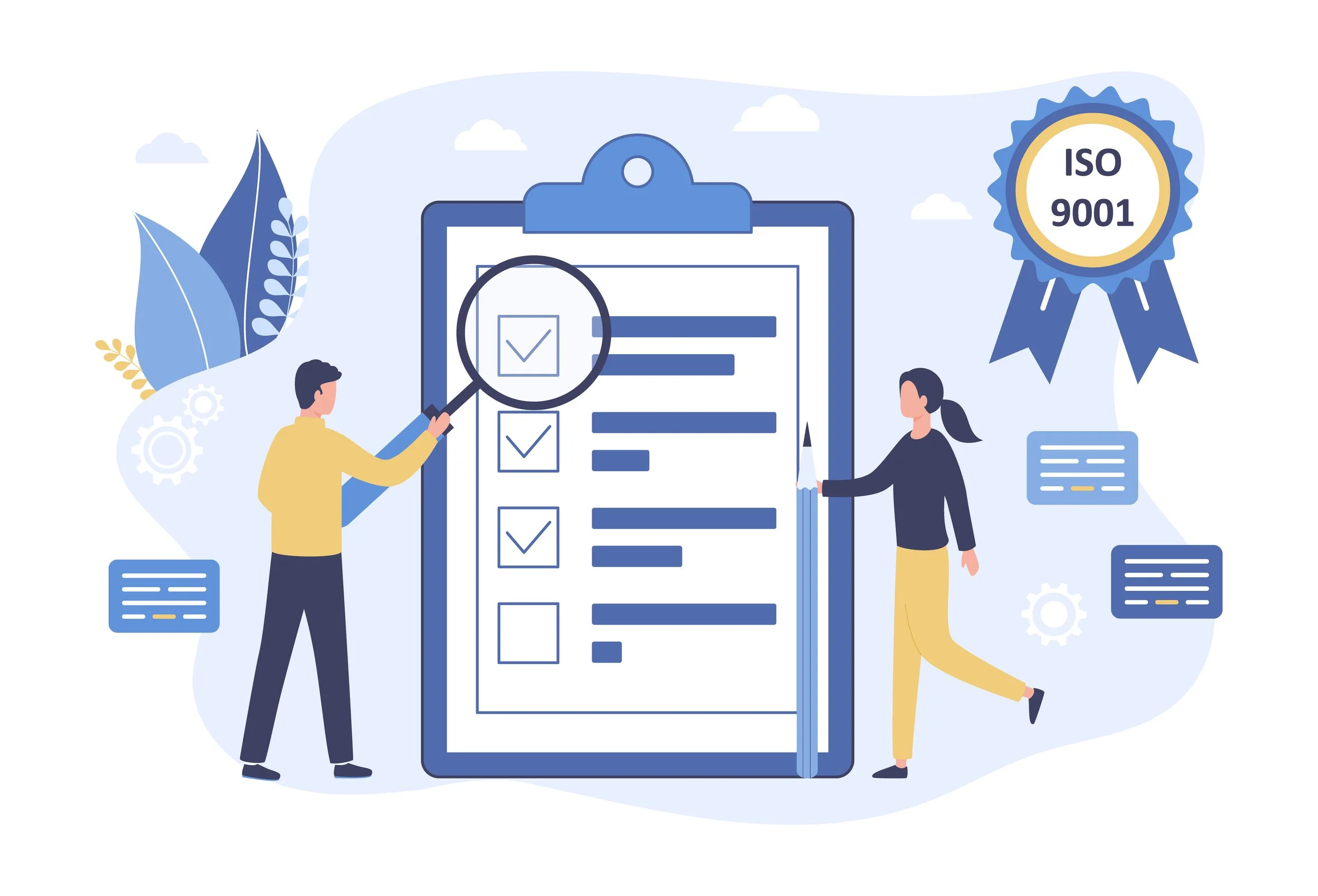The Importance of Internal Audits for Quality-Oriented Businesses: Enhancing Compliance, Efficiency, and Sustainable Growth
In today’s highly competitive and regulated business environment, ensuring product and service quality is not just a competitive advantage—it’s an operational imperative. Businesses committed to quality excellence understand that the foundation of sustainable success lies in well-structured operational frameworks, processes, and controls. A vital component of this foundation is internal audits.
At HNG Consulting, we understand the intrinsic value of quality management, operational efficiency, and proactive risk management. Internal audits are a strategic tool that helps businesses streamline their processes, maintain compliance, and foster continuous improvement. In this article, we’ll explore why internal audits are critical for quality-oriented businesses and how they contribute to sustainable growth, backed by industry data and real-world examples.
1. What is an Internal Audit?
An internal audit is an independent, objective review of a company’s internal controls, processes, and risk management strategies. It ensures that an organization operates efficiently, complies with industry standards, and mitigates risks that could affect its strategic objectives. Unlike external audits, which are typically focused on financial reporting, internal audits provide a comprehensive assessment of operations, production, cybersecurity, safety, and regulatory compliance.
2. Why Internal Audits are Essential for Quality-Driven Businesses?
Here are the top reasons why internal audits should be a core component of any quality-focused business strategy:
2.1 Ensuring Regulatory Compliance: Stay Ahead of Legal Requirements
Maintaining compliance with industry-specific regulations is non-negotiable, especially in heavily regulated sectors such as pharmaceuticals, aerospace, and food production. Internal audits help businesses monitor and ensure adherence to legal and regulatory requirements, reducing the risk of penalties, fines, or reputational damage due to non-compliance.
In the pharmaceutical industry for instance, internal audits are crucial for ensuring compliance with regulations from bodies such as the U.S. Food and Drug Administration (FDA). For instance, adhering to Good Manufacturing Practices (GMP) is essential. Internal audits examine production protocols and documentation, ensuring that each phase of drug production aligns with regulatory standards. Identifying non-compliance early prevents costly recalls and protects the company’s reputation.
According to McKinsey & Company, businesses that regularly perform internal audits see a 15% reduction in compliance-related incidents, underscoring the role of audits in maintaining regulatory alignment.
2.2 Enhancing Operational Efficiency: Streamline Processes and Boost Productivity
Beyond compliance, internal audits provide insights that can significantly enhance operational efficiency. By identifying inefficiencies and bottlenecks in business processes, audits empower organizations to improve resource utilization, reduce waste, and optimize workflows.
It’s worth mentioning that in the automotive industry, companies like Toyota have used internal audits to fine-tune production lines continuously. Toyota’s lean manufacturing system relies on regular internal audits to identify inefficiencies and optimize workflows. This practice has allowed Toyota to maintain its position as a global leader in efficiency and cost control.
According to Deloitte Insights, companies that conduct operational audits regularly report a 20% increase in productivity, highlighting how essential audits are for streamlining performance.
2.3 Proactive Risk Management: Identify and Mitigate Risks Before They Materialize
Every business faces risks, whether financial, operational, cybersecurity-related, or supply chain disruptions. Internal audits help identify and assess potential risks before they escalate into larger issues. For quality-oriented businesses, proactively managing risks ensures the consistent delivery of high-standard products and services.
In the food and beverage industry, internal audits are instrumental in identifying risks related to food safety and quality control. By auditing processes under Hazard Analysis and Critical Control Points (HACCP) guidelines, companies ensure that their products meet the highest safety standards and are compliant with industry regulations, reducing the risk of contamination or recalls.
PwC’s Global Risk Study found that companies with strong internal audit frameworks reduce operational risks by up to 30%, showcasing the critical role audits play in risk management.
3. Internal Audits: The Key for Continuous Improvement
3.1 Adapt and Thrive in a Changing Market
Continuous improvement is a core principle for businesses that prioritize quality. Internal audits play a crucial role in driving this improvement by providing data-driven insights that inform process optimization, technology adoption, and employee training.
In the aerospace industry, companies such as Airbus and Boeing rely heavily on internal audits to enhance engineering, safety, and production processes. Regular audits allow these companies to identify inefficiencies, enabling them to implement process improvements that reduce production times while ensuring stringent safety and quality standards are met.
Adopting Lean Six Sigma methodologies, often guided by internal audit findings, has helped businesses across industries reduce defects and improve overall quality, leading to higher customer satisfaction and lower operational costs.
3.2 Prevent Internal Errors
Internal audits are a critical tool for evaluating and improving internal controls that safeguard a company’s assets, ensure accurate financial reporting, and prevent fraud. A robust internal audit function identifies weaknesses in systems that could expose a business to fraud, errors, or operational inefficiencies.
In the financial services sector, internal audits frequently focus on data protection and transaction security. For example, an audit might uncover vulnerabilities in how customer data is handled, prompting management to introduce stronger cybersecurity protocols.
The Association of Certified Fraud Examiners (ACFE) reports that companies with strong internal controls and regular audits experience 45% fewer fraud incidents, demonstrating the importance of audits in fraud prevention.
3.3 A Powerful Tool to Take Strategic Decisions
Internal audits provide valuable data that supports strategic decision-making. By offering a clear understanding of current performance, risk exposure, and process gaps, audits empower leadership to make informed decisions about future investments, product launches, and market expansion.
In the healthcare industry, internal audits assess critical areas such as patient care protocols, regulatory compliance, and resource allocation. These insights help healthcare administrators make data-driven decisions that improve both patient outcomes and operational efficiency.
A survey by Ernst & Young (EY) found that companies leveraging internal audit data improve decision-making by 25%, enabling them to make smarter, more strategic choices.
4. Internal Audits as a Catalyst for Quality and Growth
For businesses committed to delivering quality, internal audits are more than a regulatory formality—they are a strategic tool that drives operational excellence, enhances risk management, and fosters continuous improvement. Whether your business is in manufacturing, healthcare, finance, or technology, the insights gained from internal audits ensure that quality is embedded in every aspect of your operations.
At HNG Consulting, we specialize in creating tailored internal audit programs that align with your business goals and industry standards. Our audit services are designed to not only ensure compliance but also support your long-term success and growth.
Ready to unlock the full potential of internal audits for your business? Contact HNG Consulting today to learn how we can help you achieve operational excellence and sustainable growth through strategic auditing.
5. Ressources
5.1 Explore Valuable Resources on Internal Audits
Unlock expert knowledge with these essential resources designed to enhance your internal audit processes:
Lean Production – The Toyota Production System and Its Efficiency: Discover how Toyota’s renowned lean methodology can improve your operational performance.
Aerospace Internal Audits Methods – Best Practices in Aerospace Audits: Learn the auditing techniques that keep the aerospace industry at the forefront of safety and innovation.
Lean Six Sigma – Implementing Continuous Improvement through Auditing: Harness the power of Lean Six Sigma to reduce defects and optimize quality.
Indsutry Insights – Leveraging Internal Audit Data for Strategic Decision-Making: See how data from internal audits can drive smarter, more strategic decisions.
Industry Insights – Operational Audits: Enhancing Productivity and Performance: Gain insights into how operational audits can lead to significant productivity boosts.
5.2 Want More? Get Access to Premium Templates!
By subscribing to our newsletter, you’ll gain exclusive access to internal audit templates and 100+ specialized resources designed to help quality specialists streamline their audit processes and enhance efficiency.




